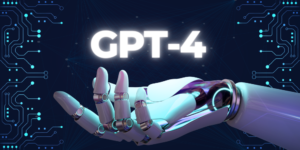According to Statista, the global AI-powered healthcare market, valued at $11 billion in 2021, will stand at a staggering $187 billion by 2030. The spike is associated with more access to data, better machine learning algorithms, cheaper hardware, and the availability of 5G. AI in healthcare has the potential to run through enormous volumes of data, from health records to genetic information. In addition, it can analyze and interpret results much faster than humans. AI in healthcare is revolutionizing the industry, offering unprecedented insights and efficiencies.
AI in Health Care Systems – Benefits & Challenges
The importance of AI in healthcare can be best summarized by Vinod Khosla’s words, “The most expensive part of the US healthcare system is expertise, and expertise can be tamed with technology and AI.” The use of artificial intelligence can alleviate the problems of staff, patients, and management altogether.
Following are some of its benefits:
1. Administrative Workflow
In normal circumstances, healthcare workers spend ample amounts of time on paperwork and other administrative tasks, because of which, improper time management and problems for the patients propel. AI in healthcare plays a crucial role in this regard: By handling these jobs, it provides free time to employees who can then engage with patients intimately.
2. Virtual Nursing Assistants
According to a study, 64% of patients prefer the use of AI assistants (chatbots, apps, and other interfaces) around the clock. These tools, part of AI in healthcare, can be used to provide solutions on medications, send reports to medical professionals, and assist patients in scheduling visits. Such routine tasks can help stakeholders manage their tasks with ease and comfort.
3. Dosage Error Reduction
According to a study by Nature Medicine, 70% of patients didn’t take insulin as recommended. Such lapses affect their health adversely, limiting lifespans and worsening nervous systems. To keep away from such happenings, artificial intelligence is implemented. It helps administer medicine dosage by working in the background.
4. Safe Surgeries
Whether it’s offering valuable information on surgeries or operations or working as a robot in the operation theater, artificial intelligence provides safe and effective application of surgical tools, time-efficient processes, and optimized operations. In one study, AI has been used to diagnose a brain tumor in under 3 minutes.
5. Fraud Prevention
Where health is a top priority for all, managing finances is also an important aspect. According to research, scams in the healthcare sector have spiked up to 380 billion dollars/year. AI in healthcare has proved its ability to safeguard the financial deposits of various healthcare facilities. It can detect gaps or suspicious patterns in managing finance, insurance claims, and cash disbursement.
How to Build Reliable AI-augmented Systems in Healthcare?
Below is a multi-step, iterative approach to build effective AI in healthcare systems:
- Design & Develop
Identify and understand the issue for improvement. Stakeholder engagement and ethical implications are also essential.
- Evaluate & Validate
Ensure statistical validity and clinical and economic utility.
- Diffuse & Scale
Manage development modality, regulatory approvals, model updates, and payments.
- Monitor & Maintain
Observe and sustain post-marketing surveillance, safety monitoring, and prospective maintenance.
AI Governance in Healthcare Systems
According to Laura Craft, VP Analyst at Gartner, “AI governance is necessary, especially for clinical applications of the technology.” The WHO (World Health Organization) produced a report titled, “Ethics & Governance for Artificial Intelligence and Health”. This report provided various challenges to implementing AI in healthcare. Six principles were outlined for the optimal use of Artificial intelligance in healthcare.
- Protecting autonomy
- Promoting human safety
- Ensuring transparency
- Fostering accountability
- Ensuring equity
- Promoting the Use of AI Tools
So, what is your opinion on AI usage in healthcare systems? Add a comment below.









